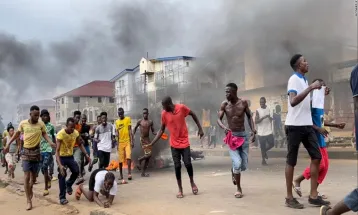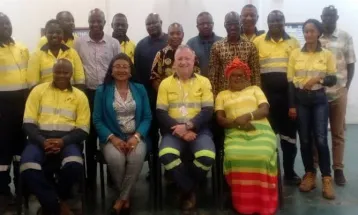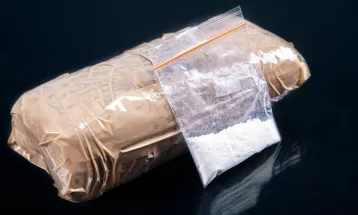
Drug Trafficking Incident Involving Sierra Leonean National Raises Concerns and Calls for Action
Recently, a Sierra Leonean national was apprehended at the Mumbai airport in India under suspicion of drug trafficking. The individual, whose identity remains undisclosed, was found to have ingested 74 capsules filled with cocaine, amounting to a total weight of 1,108 grams. This discovery underscores the severity of the issue of drug smuggling and its implications for both individual lives and international security.
According to officials, the estimated value of the seized cocaine is approximately Rs 11 crore. The arrest was made by the Directorate of Revenue Intelligence (DRI) based on specific intelligence received prior to the suspect's arrival at the Chhatrapati Shivaji Maharaj International Airport in Mumbai on March 28. Following interrogation, the suspect confessed to swallowing the cocaine capsules in an attempt to smuggle the illicit substance into India.
Subsequently, the suspect was admitted to the JJ Hospital, where a team of doctors successfully removed the capsules from his abdomen. The individual has since been detained and faces charges under the Narcotic Drugs and Psychotropic Substances (NDPS) Act, with further legal proceedings underway.
This incident is not an isolated one, as it follows another case involving a Sierra Leonean national apprehended for drug trafficking in India just days prior. In that instance, a woman was arrested with nearly 2 kilograms of cocaine concealed in various items such as shoes, moisturizer, shampoo bottles, and antiperspirants, with an estimated value of Rs 19.79 crore.
The recurrence of such incidents involving Sierra Leonean nationals highlights the need for increased vigilance and preventive measures to combat drug trafficking. It also underscores the importance of international cooperation in addressing transnational crimes and ensuring the safety and security of communities worldwide.
While the identities of the individuals involved have not been disclosed, there have been calls for transparency in reporting such cases to aid in the fight against narcotics trafficking. Additionally, there have been suggestions for enhanced scrutiny of travel documents and stricter border controls to prevent the illicit movement of drugs across international borders.
As Sierra Leone grapples with its image being tarnished by such incidents, there is a growing demand for the government to take proactive measures to address the root causes of drug trafficking, including poverty, unemployment, and inadequate law enforcement capabilities. Efforts to strengthen border security, improve surveillance, and enhance cooperation with international law enforcement agencies are essential in curbing the menace of drug trafficking and safeguarding the nation's reputation on the global stage.
In conclusion, the recent drug trafficking incidents involving Sierra Leonean nationals serve as a stark reminder of the challenges posed by narcotics smuggling and the urgent need for coordinated efforts to combat this illicit trade. By taking decisive action and implementing comprehensive strategies, Sierra Leone can contribute to the global fight against drug trafficking and uphold its commitment to international law and order.




















